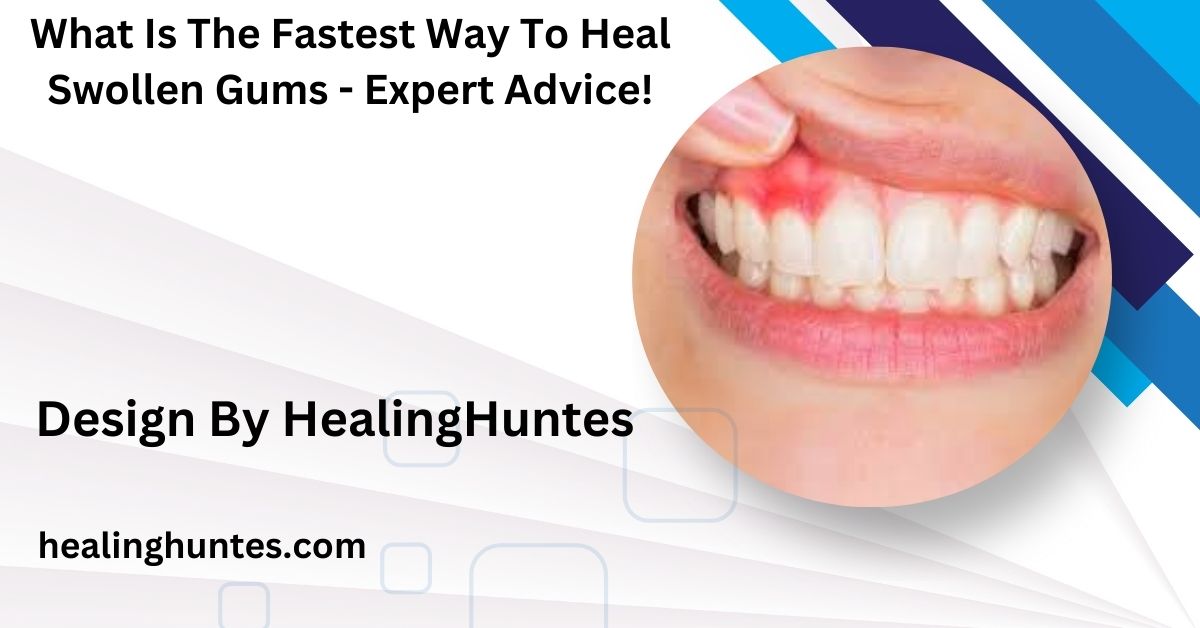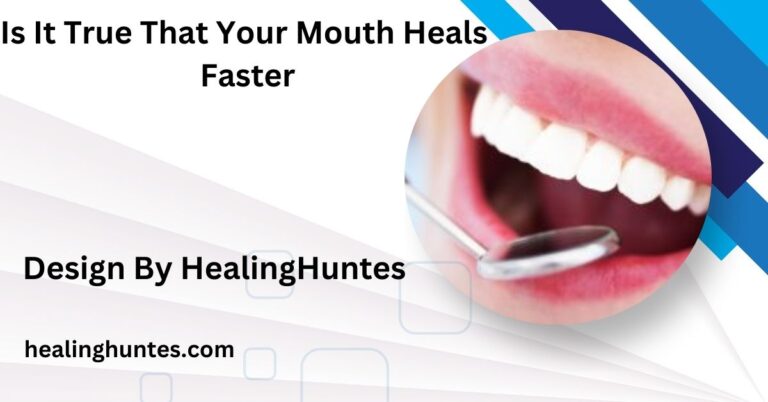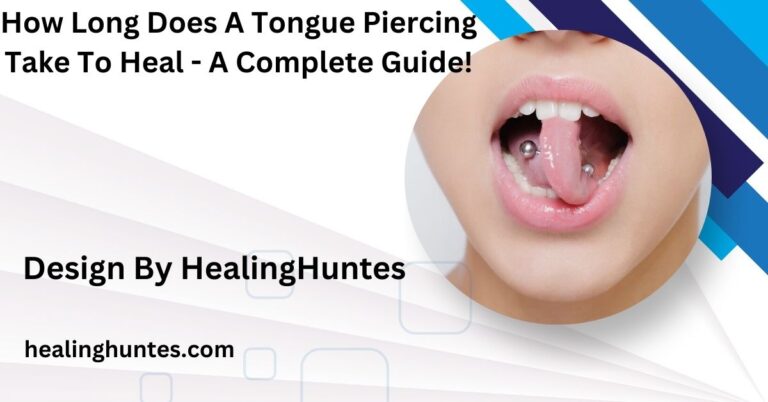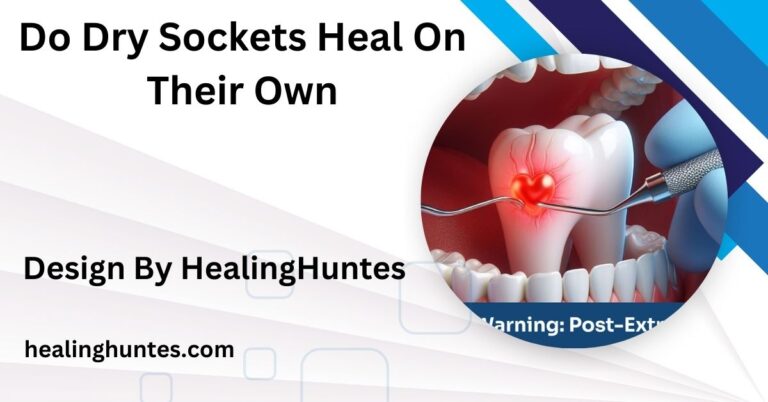What Is The Fastest Way To Heal Swollen Gums – Expert Advice!
Swollen gums can be healed with good oral hygiene, natural remedies like aloe vera and turmeric, and preventing future issues through healthy habits.
This guide provides actionable tips to heal swollen gums efficiently and prevent future issues.
Understanding Swollen Gums:
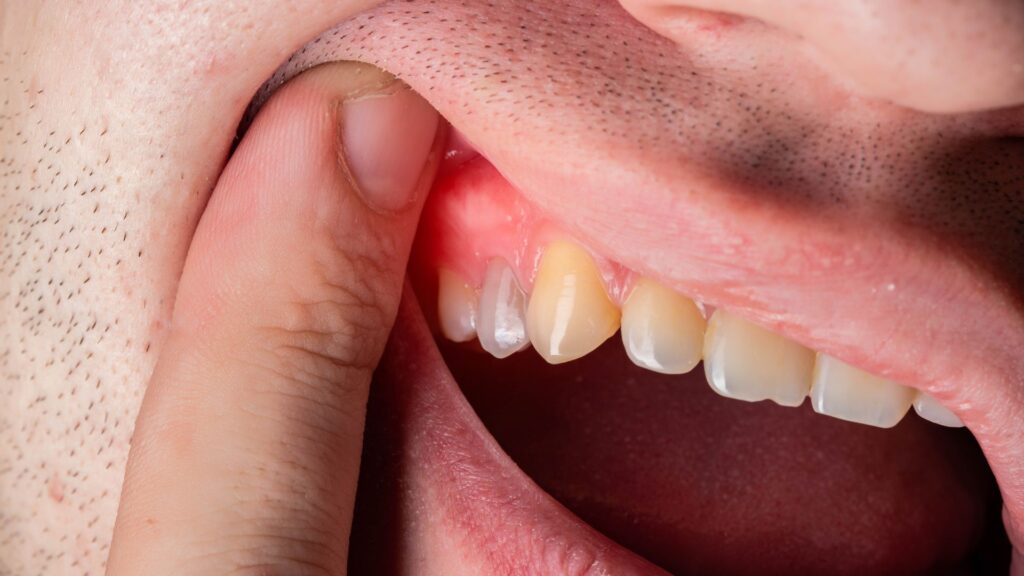
Swollen gums are often caused by inflammation due to poor oral hygiene, gum diseases, or irritants like tobacco. They appear red, tender, and puffy, making everyday activities uncomfortable. Hormonal changes, infections, or vitamin deficiencies can also contribute. Identifying the cause is crucial for effective treatment.
What Causes Swollen Gums:
Swollen gums occur due to inflammation triggered by poor oral hygiene, infections, or gum diseases like gingivitis. Other causes include hormonal changes, vitamin deficiencies, or irritation from braces or dentures. Identifying the root cause is essential for effective treatment.
Symptoms of Swollen Gums:
Common symptoms include redness, tenderness, and puffiness of the gums. You may also experience bleeding while brushing, bad breath, or discomfort while eating. Severe cases might indicate underlying dental or systemic issues that require professional attention.
Steps to Heal Swollen Gums Quickly:
Start with maintaining proper oral hygiene by brushing gently and flossing daily. Use a warm saltwater rinse to soothe inflammation and reduce bacteria. Cold compresses can provide instant relief from swelling and pain. If symptoms persist, consult a dentist for targeted treatment.
Improve Oral Hygiene:
Clean your teeth twice a day with a gentle toothbrush to avoid causing more irritation. Floss gently to remove plaque and food particles stuck between teeth. Maintaining good oral hygiene prevents the buildup of bacteria, helping gums heal faster.
Also Read: Greater Healing Potion – Natural Remedies for Faster Recovery!
Rinse with Warm Salt Water:
A saltwater rinse is a natural antiseptic that soothes inflammation and reduces bacteria in the mouth. Mix half a teaspoon of salt in a glass of warm water and rinse for 30 seconds. Repeat this process 2-3 times daily for relief.
Apply Cold Compresses:
Cold compresses can reduce swelling and numb the affected area, providing instant relief. Wrap an ice pack in a cloth and apply it to the outside of your cheek for 10-15 minutes. Avoid applying ice directly to the gums to prevent further irritation.
Use Antiseptic Mouthwash:
An over-the-counter antiseptic mouthwash can kill bacteria and promote gum healing. Look for alcohol-free options to avoid drying out your mouth. Use as directed, especially after meals, for optimal results.
Home Remedies to Speed Up Recovery:

Aloe vera gel and turmeric paste are natural remedies with anti-inflammatory properties that can ease gum swelling. Black tea bags, rich in tannins, help reduce inflammation when placed on the affected area. Staying hydrated and eating a balanced diet also promotes faster healing.
Aloe Vera Gel:
Aloe vera’s anti-inflammatory and soothing qualities make it an excellent remedy for swollen gums. Apply a small amount of pure aloe vera gel directly to the affected area, allowing it to sit for a few minutes. Rinse with water afterward to reduce swelling and discomfort.
Turmeric Paste:
Turmeric is a powerful natural anti-inflammatory and antimicrobial agent that can help reduce gum swelling. Mix turmeric powder with water to create a paste, then apply it to the gums. Leave it on for about 10 minutes before rinsing with warm water.
Tea Bags:
Black or green tea bags, rich in tannins, can reduce gum inflammation and promote healing. Soak a tea bag in warm water and place it on the swollen area for a few minutes. Use this remedy once or twice daily for the best results.
Preventing Future Gum Swelling:
Regular dental checkups and cleanings help prevent gum issues by removing plaque and tartar. Adopt a balanced diet rich in vitamins and minerals, especially vitamin C, to strengthen your gums. Avoid tobacco and irritants while using alcohol-free dental products to keep your gums healthy.
Maintain Regular Dental Checkups:
Regular visits to the dentist help detect and address dental issues early, preventing problems like gum inflammation. Professional cleanings remove plaque and tartar, keeping gums healthy. Schedule checkups every six months to maintain optimal oral hygiene.
Also Read: Healing Natural Oils – What You Need to Know!
Follow a Balanced Diet:
Eating a diet rich in vitamin C, along with fresh fruits, vegetables, and whole grains, strengthens your gums and supports tissue repair. Staying hydrated helps maintain healthy saliva production, which naturally protects gums from infections. A balanced diet contributes to long-term oral health.
Avoid Tobacco and Irritants:
Smoking and chewing tobacco irritate the gums and exacerbate swelling, leading to long-term oral health issues. Quitting tobacco products helps improve gum health and reduces the risk of inflammation. Choose alcohol-free oral care products to avoid additional gum irritation.
When to See a Dentist:
- See a dentist if swollen gums persist for more than a week.
- Seek help if swelling is accompanied by severe pain, bleeding, or pus.
- Difficulty swallowing or breathing requires immediate dental or medical attention.
- Early intervention can prevent complications and speed up healing.
- Persistent symptoms may indicate gum disease or an infection that needs professional treatment.
FAQ’s
1. How long does it take for swollen gums to heal?
Mild cases of swollen gums can heal within a few days with proper care, while severe cases may take up to two weeks.
2. Can swollen gums heal without treatment?
Swollen gums caused by minor irritation may resolve on their own, but neglecting treatment can lead to complications.
3. Is saltwater rinse effective for swollen gums?
Yes, saltwater rinse is a simple and effective remedy to reduce bacteria and soothe gum inflammation.
4. Can stress cause swollen gums?
Yes, stress can weaken the immune system, making gums more prone to inflammation and swelling.
5. Are swollen gums a sign of gum disease?
Swollen gums are often an early sign of gingivitis, which, if left untreated, can progress to periodontal disease.
Conclusion
Swollen gums can be effectively treated with proper oral care and natural remedies. Regular brushing, saltwater rinses, and cold compresses are key to reducing inflammation quickly. Home remedies like aloe vera, turmeric paste, and tea bags can further aid in healing. Preventing future gum issues involves maintaining good oral hygiene, a healthy diet, and avoiding irritants. For persistent symptoms, consulting a dentist ensures long-term gum health.
